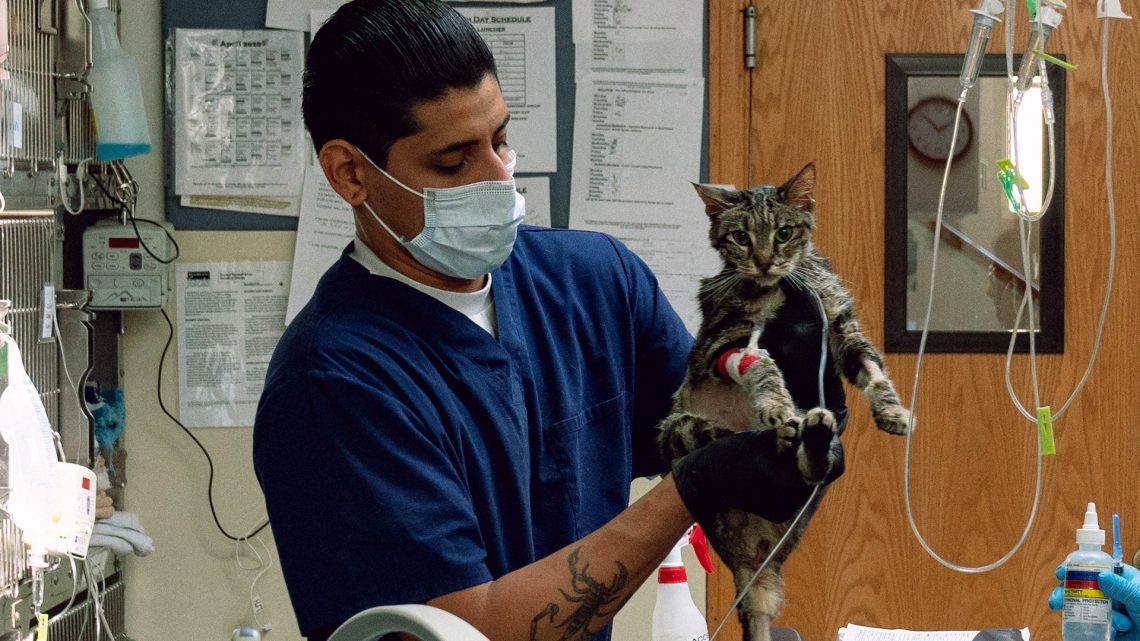
Yes, Your Pet Can Catch Coronavirus — but Don’t Freak Out
April 18, 2020WEST HOLLYWOOD, California — Dr. J.D. Caslyn is seeing patients a little differently now: without their owners.
The California veterinarian is implementing social distancing in his practice by having pet owners wait in their cars and sending out a technician to bring the animal inside the office for their appointments. The only interaction Dr. Calsyn has with the owners is a phone call at the end of the visit. He’s also limiting appointments to emergency and high-risk only.
“Realistically, pets aren't the best medium to transfer the virus. Their fur is coarse. So the droplets don't stay on there,” Dr. Calsyn says. “If cats and dogs can get infected, we should be seeing this, and we are not,” Dr. Calsyn says. But it's still possible, so he's taking those precautions.
Animals may be able to transfer the virus by licking someone who’s infected and then licking you, or simply by carrying the virus on their fur. It's unlikely, but a new study in the journal Science found that cats and ferrets can contract the new coronavirus. Cats are most vulnerable as they can not only catch it from humans and become ill, the report reads, but they can also give the virus to other cats.
COVID-19 tests for animals aren’t available commercially. In the U.S., these tests are only done by private labs for research purposes. One of those labs, IDEXX, has tested 5,000 samples from 17 countries without a positive result, according to a company statement.
While the infection count is low and the risk of an animal spreading the virus isn’t significant, Dr. Calsyn says it isn’t negligible, either. To stay safe, he has one suggestion: “Social distance your pet. Do not have them interact with other people and other animals as much as possible.”


